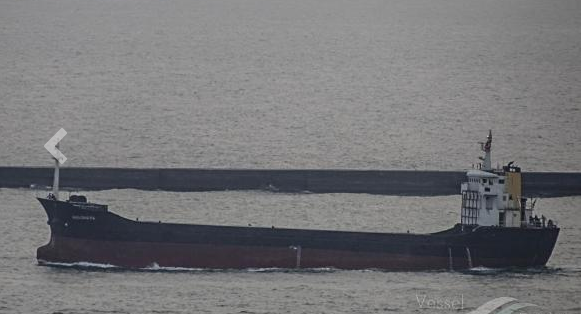YANGON—The Myanmar Marine Administration Department said it is monitoring 14 seafarer recruitment and placement companies whose licenses were temporarily suspended to see whether the companies are providing adequate help to Myanmar sailors detained in China.
The Myanmar government suspended the companies’ licenses in October last year after Chinese authorities arrested 60 Myanmar nationals working on ships that were transporting restricted goods.
The 14 seafarer recruitment and replacement services (SRPS) companies being monitored have sent about 60 Myanmar seamen to work on ships in China since late 2017.
Chinese authorities consider the ships illegal as they transport sugar and frozen meats, which are restricted goods in China.
In 2018 and 2019, 40 of the 60 arrested were able to return to Myanmar after authorities completed their investigations.
The remaining 20 workers are still being held in China, according to U Hein Htet Soe, the director of the Marine Administration Department, which is under the Ministry of Transport and Communications. He added that the Myanmar Embassy in China is intervening in the cases.
The director told The Irrawaddy last Friday that based on the SRPS companies’ actions, the ministry will decide whether to completely revoke or reissue their licenses.
“If they do not care about the welfare of those seamen, we will be revoking their licenses and will take further actions to force the shutdown of the companies,” he said, adding that if the licenses were revoked immediately, the companies might not help the workers whom they helped to recruit and place.
He explained that the arrests were related to the ongoing trade war between the United States and China which started in 2018, and that frozen meats, some of which come from Europe and the US, and sugar were put on a list of restricted items.
On Dec. 22, 2019, the Marine Administration Department also announced the names of 36 illegal ships arrested in China, in order for SRPS companies to avoid sending workers to the illegal ships. These included Chinese illegal ships and sanctioned ships from North Korea.
“Some people do not know what they were shipping,” U Hein Htet Soe added. “The sailors would not know what is in the containers.”
The department also sent the list of illegal ships to the Myanmar Seafarers’ Employment Service Federation (MSESF).
“The sailors load the goods and then transport them to ports to deliver the goods. Many do not know whether these are legal or illegal ships. If [the workers] knew, they would not do it,” said MSESF Chairman U San Oo.
SRPS companies in Myanmar send workers abroad to specific ships but the companies do not know exactly what the ships will be transporting.
“We now tell the companies to ask the ships where they will be heading. If they do, [the SRPS companies] can guess [what the ships might be transporting],” U San Oo added.
Currently, over 25,000 Myanmar nationals are working on ships internationally, compared to an annual average of nearly 30,000.
The story is updated and translated from Burmese by Nyein Nyein.

















